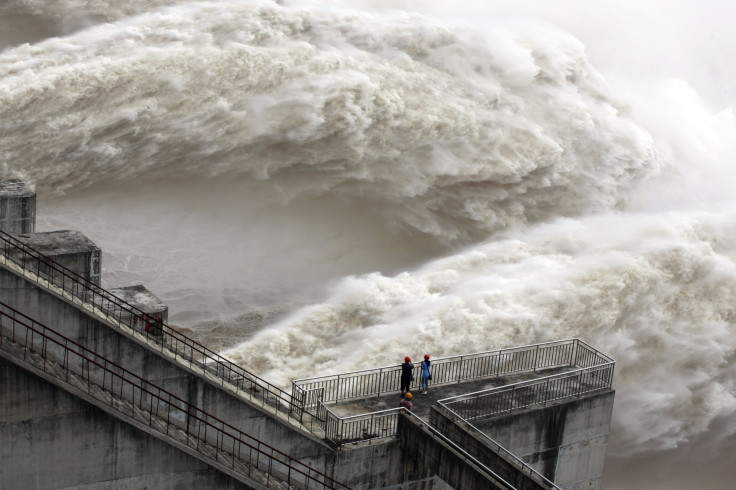Climate Change Threatens China's Infrastructure As Typhoons, Floods And Drought Increase, Meteorologist Warns

China’s key infrastructure projects are under increasing threat from climate change, China’s top meteorologist warned this week. He noted that typhoons, floods, droughts and heat waves are growing more frequent and intense because of rising global temperatures, Reuters reported.
"Against the backdrop of the global warming, the risks faced by our large engineering projects have increased," Zheng Guoguang, head of China's Meteorological Administration, told the weekly newspaper the Study Times. He cited the Three Gorges Dam -- both the world’s biggest hydroelectric plant and largest dam -- and a high-altitude railway to Tibet among the critical projects threatened by extreme weather events.
"Global warming affects the safety and stability of these big projects, as well as their operations and economic effectiveness, technological standards and engineering methods," he told the newspaper.
Zheng added that confronting climate change will be critical for ensuring China’s sustainable economic development. China is the world’s biggest emitter of greenhouse gases, and its atmosphere is warming “at an obviously higher rate” than the global average, with the first decade of this century recording the highest temperatures in the past 100 years.
China’s leaders last fall signaled an unprecedented willingness to reduce emissions in the country of 1.4 billion people. Chinese President Xi Jinping in September said China’s emissions would peak by 2030, while its share of nonfossil fuels would rise to 20 percent of its total energy mix over that time. U.S. President Barack Obama simultaneously announced a target to cut America’s emissions by up to 28 percent below 2005 levels by 2025.
The joint commitment, unveiled in Beijing, was intended to inspire other countries to slash their emissions ahead of a United Nations climate change conference this year. Negotiators from nearly 200 nations have agreed to meet in Paris in December to sign a global pact to reduce emissions, the first commitment of its kind in history.
In China, attempts to curb carbon emissions and reduce smog and air pollution are starting to take hold. The country’s carbon dioxide emissions dropped by 2 percent in 2014 compared to a year earlier -- the first such decline in more than a decade, Bloomberg New Energy Finance reported in March. The falling emissions reflect China’s slowing demand for coal-fired electricity and a growing appetite for cleaner natural gas and renewable electricity.
© Copyright IBTimes 2025. All rights reserved.




















